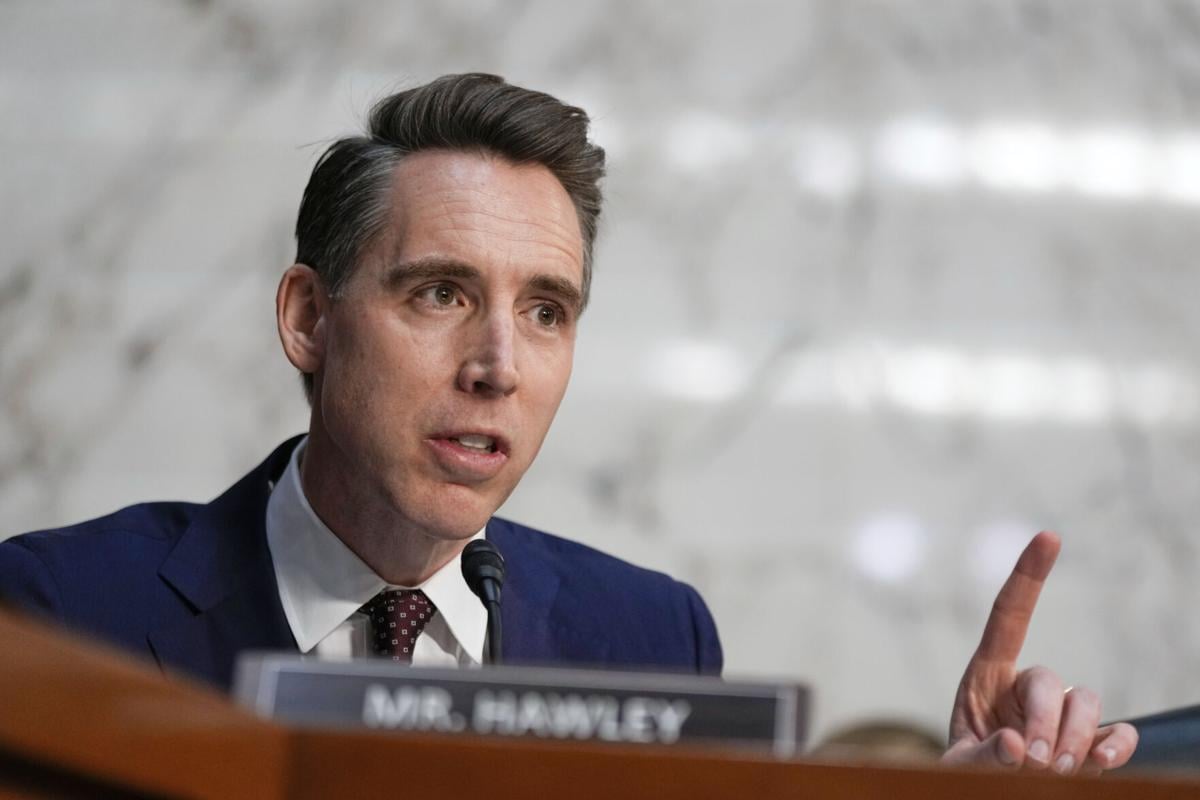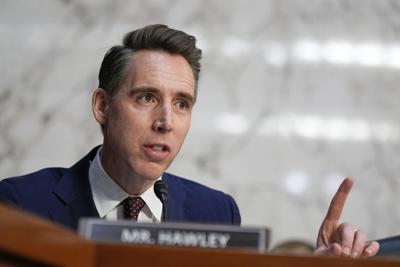As the latest “big, beautiful” budget bill lumbers toward passage in the U.S. Senate, Josh Hawley is standing in the middle of a battle between Republicans over Medicaid.
But the flashpoint of the GOP’s internal spat is not insistence on stricter work requirements — a provision that the party embraces, and readily admits will result in people being trimmed from the benefits roll.
The main friction in the current fracas comes from something known as provider fees — an element that would not have as big of an impact on ӣ����Ƶ hospitals as it would on outstate health facilities.
“We need to keep our rural hospitals protected and open, and I’m fighting on that right now,” Hawley said in a recent interview with this bureau. “We’ve got to make sure rural hospitals stay healthy, can stay operating.”
People are also reading…
Hawley said about half of all hospitals in Missouri would qualify as “rural ... and we need to keep all of them open.”
The specific stumbling block concerning provider fees is language recently added by the Senate Finance Committee, that would reduce the Medicaid provider tax rate to 3.5%, as opposed to the current 6%.
A provider fee determines the amount of money the federal government reimburses a state for services provided under Medicaid.
Supporters of the measure to reduce federal provider fees contend that this change, which would put more of a burden on states, would help trim waste, fraud and abuse from the program — the same argument offered for tightening work requirements.
But Hawley and several other GOP senators raised up late last week to argue that the change would be a problem, possibly even a catastrophe, for rural hospitals.
The National Rural Health Association which states that if the provider-fee tax rates are reduced, rural health care would be “at serious risk.”
“Further reductions in Medicaid funding would force many facilities to eliminate essential services, delay much-needed equipment upgrades (or) close their doors entirely,” the release claims.
The release also notes that the cuts would increase unemployment, because the largest employers in many rural areas are hospitals and other health care facilities.
Hawley has told the media he opposes that provision and wants to see GOP leaders put back in the House language that would not cut the Medicaid provider tax rate, but instead freeze it at 6%.
“That’s what we’re fighting on right now,” he concluded.
Hawley isn’t the only fellow Republicans about the budget bill’s Medicaid language.
U.S. Sen. Jim Justice of West Virginia has voiced opposition to the provider fee cuts and several other senators, such as Lisa Murkowski of Alaska and Ron Johnson of Wisconsin, said recently they don’t support other parts of the Senate’s Medicaid language.
In the weeks before that, at least three other GOP senators said they had problems with aspects of the proposed cuts in Medicaid.
With a 53-47 majority in the Senate, the GOP simply doesn’t have six votes to lose.
And according to Hawley, some moderate GOP members of the House also are keeping a wary eye on the Senate Finance Committee’s provider tax cuts.
that timely passage of the budget bill — which the White House wants by July 4 — would be all but impossible if there is a fight in the Senate, and then possible a second skirmish in the House.
“I don’t know why we would pass something that the House can’t pass and will force us into conference,” “Unless you want to be here in August and September still doing this, I think that is a bad, bad plan.”
Said Hawley, “We don’t have time to reinvent the wheel.”
As federal budget discussions continue, state leaders express concern over proposed Medicaid changes that could affect millions of low-income Americans. (Scripps News)














